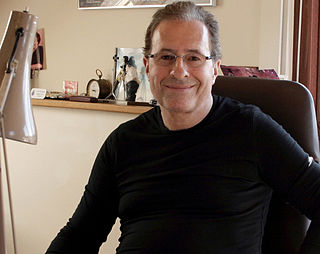A Quote by Pankaj Mishra
Gandhi, brought out of his semirural setting and given a Western-style education, initially attempted to become more English than the English.
Related Quotes
I don't find English restrictive, but it brings a level of discipline to my writing that I wouldn't have in Bulgarian. My control of English, however you define it, my ability to work in English, is more limited than in Bulgarian. That means out of necessity I have to develop a style that goes for clarity of expression which I may not have done otherwise.
Branson ate his salad, and left the rest of his fish untouched, while Grace tucked into his steak and kidney pudding with relish. 'I read a while ago,' he told Branson, 'that the French drink more red wine than the English but live longer. The Japanese eat more fish than the English but drink less wine and live longer. The Germans eat more red meat than the English, and drink more beer and they live longer too. You know the moral of this story? 'No' 'It's not what you eat or drink - it's speaking English that kills you.
Well, English is no problem for me because I am actually English. My whole family are English; I was brought up listening to various forms of the English accent. Obviously there are more specific ones that get a little bit tricky. Same with American stuff. But because in Australia we're so inundated with American culture, television, this that and the other, everyone in Australia can do an American accent. It's just second nature.
English is the largest of human tongues, with several times the vocabulary of the second largest language -- this alone made it inevitable that English would eventually become, as it did, the lingua franca of this planet, for it is thereby the richest and most flexible -- despite its barbaric accretions . . . or, I should say, because of its barbaric accretions. English swallows up anything that comes its way, makes English out of it.
Not long time ago there was a striking example of the extent to which English has diverged: a television company put out a programme filmed in the English city of Newcastle, where the local variety of English is famously divergent and difficult, and the televised version was accompanied by English subtitles!
Once, BBC television had echoed BBC radio in being a haven for standard English pronunciation. Then regional accents came in: a democratic plus. Then slipshod usage came in: an egalitarian minus. By now slovenly grammar is even more rife on the BBC channels than on ITV. In this regard a decline can be clearly charted... If the BBC, once the guardian of the English language, has now become its most implacable enemy, let us at least be grateful when the massacre is carried out with style.
If you do not learn English in this country, you cannot get anywhere. We are in America. We are not in Mexico, we are not in China, we are not in Saudi Arabia - we speak English in this country! And what bilingual education does, is keep them from learning English, so they are doomed to be second-class citizens.





































